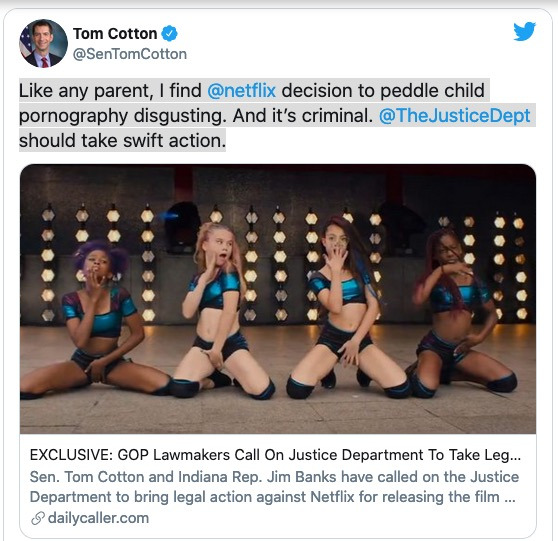Imagen: www.variety.com
Netflix again faces a controversy related to its content available on its platform. It’s not the first time, either because of the story being told or because of the people involved. And the common denominator is that many of the people and institutions that raise their voices have not seen the series, films or documentaries they judge. The new case is the French film Cuties, which became the new victim of the “Cancel Culture”.
There is quite a bit of controversy surrounding the film that could very well disperse once people see it. Directed by Maïmouna Doucouré, Cuties (in French, Mignonnes) tells the story of an 11-year-old Senegalese Muslim immigrant named Amy who moves to Paris. While her family encourages her to be modest and obedient, Amy befriends a group of girls who form a dance group to gain popularity on social networks.
Netflix bought Cuties just before its successful premiere at the Sundance Film Festival in 2020, but controversy erupted when Netflix’s marketing department unveiled its poster, featuring its four protagonists in shorts with boots and tank tops in provocative poses.
Once the poster was published, the comments ran like wildfire through the social networks, where hundreds of people criticized the image because it was considered to offer a “sexualized” image of minors, which originated the hashtag #CancelNetflix in which thousands of people asked to cancel their subscriptions to the platform.

Imagen: www.marca.com
According to Variety, research company YipitData estimated the numbers and determined that cancelled Netflix subscriptions increased to nearly 800% of the rates reported in August. This was the largest subscription cancellation the network has experienced in several years.
However, Cuties also had its share of advocates. Tessa Thompson, who saw the film at Sundance, tweeted her claim that Cuties was a “beautiful film”.
Netflix quickly apologized for the poster, admitting that it was not representative of the film. Netflix CEO Ted Sarandos even called to personally apologize to the film’s director, who became a target for Internet trolls who directed their energies to attacking her for creating a “movie that sexualizes girls”.
One thing that the director is clear about this whole situation is the importance of the need to protect girls and young women, and that her only intention was to open the eyes of the world to this reality that many girls in various countries where this situation is completely normalized are living.
Something that is striking about this situation is the selective capacity that some people have to choose their objectives of cancellation when in reality there are many programs that show some form of child exploitation as the famous American reality show Dance Moms, to mention an example of a program that has more than 10 seasons on air in which girls have appeared dressed even more suggestive.
Another point that is worth highlighting is the little capacity for critical thinking that there is at present, given that the context in which many stories were created is never taken into account, that beyond justifying things that may be wrong, it is rather an exercise to understand and comprehend the political, historical and cultural moment that was being lived at the time, in order to identify the advances that have been made in the world with respect to various themes.
The learning that this leaves us is that criticism will always be much more powerful and correct when it is made from the base and knowledge, not from presumption or ignorance.



